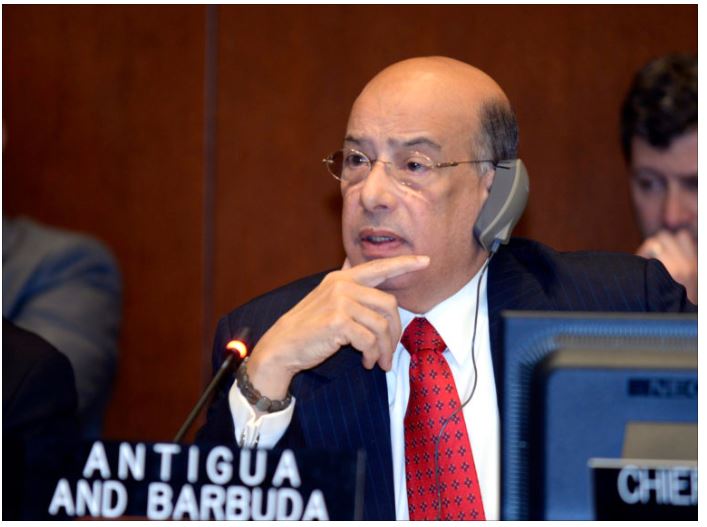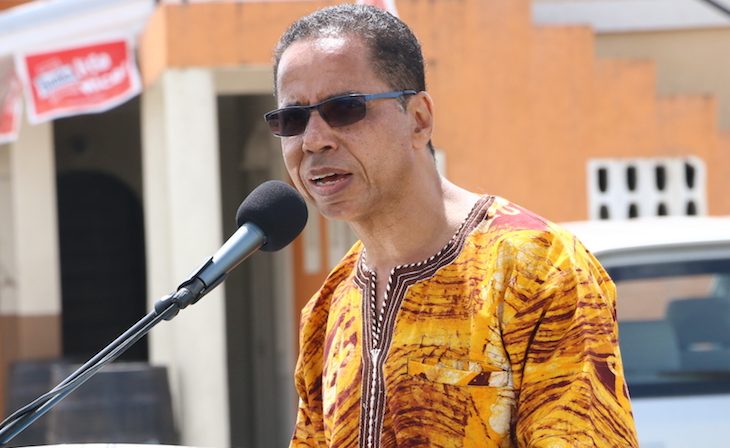By Rebecca Theodore
Modern Jewish scholars inscribe the present-day era of world Jewry as the embracing of American, east European and the Palestinian and Israeli communities.
Although history documents, that there were flourishing Jewish societies in the Caribbean, mostly in areas under Dutch and English control, the history of Jews and anti-Semitism in the Caribbean remains an uncompleted terrain.
According to British Journalist Joanna Newman “the history of Jews in the Caribbean is one that is not well known. Their place gets lost in more colorful tales of Spanish conquistadors, cutthroat pirates, and continual battles between the European powers over territory.”
But the Jewish presence and anti-Semitism in the Caribbean cannot be miscalculated.
Convincingly, the changing geopolitical climate of a new post COVID-19 era and a media environment is leading to a situation, where open anti-Semitism in the Caribbean is no longer confined to the extremist sphere. As racial discrimination and anti-Semitic policies become increasingly mainstream, political anti-Semitism in the Caribbean now voices the flammable podiums of political and social alliances, and the rhetoric of their spokespersons.
In the Caribbean, anti-Semitism is impulsive and often violent in language, and is now expressed at the peak echelons of government, the media and in legislatures.
At this point, anti-Semitism in the Caribbean not only evolves as the dehumanizing slur of nation of Islam’s leader Louis Farrakhan and the complete diabolizing of Jews, but also as a prejudicial vantage point, degraded into a doctrine that pretends to explain movements of world history based on media reports and social media conspiracy theories.
Hence, a full import of the ignorance of the present anti-Semitic moment in the Caribbean.
While critics argue that “the anti-Semitism of the Caribbean is simply a reflection of our times, and should not be judged in terms of the Nazi variant,” more and more, anti-Semitism is the driving force of a range of violent extremist ideologies, and a security issue for Jewish communities and individuals in the Caribbean.
More obvious is the fact, that anti-Semitism in the Caribbean also pollutes political discourse, driving out reasoned homily with exclusively illogical, and compelling myths. Political anti-Semitism is taking on a new imagery in the Caribbean as populist candidates use anti-Semitism to generate political gains, thus tainting the political system of a modern democratic society that prided itself on its obligations to reason, democratic values and human rights.
Elaborating further, addressing anti-Semitism through education and civic participation is an immediate security imperative and a long-term educational investment to promote human rights and global citizenship in the Caribbean.
It is here that the guideline policies of UNESCO and the Organization for Security and Cooperation in Europe (OSCE) are urgently needed, because it is United Nations resolution 3379 that denounced and demeaned the battle against real racism in its so-called “Zionism is racism mantra.”
It was Resolution 3379 that discredited the national self-determination of one, while at the same time, honored the aspirations of all other peoples. Even though United Nations Resolution 3379 has been rescinded, its negative reverberation in the Caribbean is difficult to underplay.
The undercurrents of United Nations Resolution 3379 continue to contribute to the general climate of anti-Semitism, intolerance and bigotry in the Caribbean and concrete measures are needed of the ways to address anti-Semitism through education within a human rights framework.
Policymakers in the Caribbean need to be provided with tools and guidance to ensure that education systems build the resilience of young people to anti-Semitic ideas and ideologies, and all forms of intolerance and discrimination.
International capacity-building workshops for policymakers in the Caribbean region are needed to underline the many-faceted nature of anti-Semitism, and encourage Caribbean Governments to commission studies on its various facets and also on every form of ethnicity-related discrimination and abuse. The United Nations resolution 3379 must correct the wrong of racism and anti-Semitism in the Caribbean by strengthening their capacity to address each particular form of anti-Semitism with appropriate legal, economic cultural, political, educational and social procedures.
At a time when Jews are still being killed for the fantasy offence of being Jewish, a new moral resolution is required in the Caribbean, because the anti-Semitism of the Caribbean is deeply troubling.
Its veracity is not respected, but its ugliness is recognized as Israel’s very right to exist is routinely defied and the venture of Jewish self-determination is denied. The contempt for Jews and the crudeness and conceits of anti-Semitism’s in the Caribbean cannot be under evaluated.
In the Caribbean, anti-Semitism matters.




